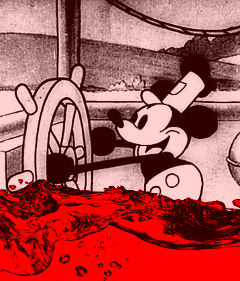New blood boosts old brains with youthful injection
 Recent discoveries suggest that the blood of the young may help regenerate old muscles and organs.
Recent discoveries suggest that the blood of the young may help regenerate old muscles and organs.
If findings in mice carry over to humans, it may be possible to restore and rejuvenate aged bodies by injecting them with young blood.
two recent studies were conducted in which the blood of young mice was given to old ones, which reversed some age-related impairments in the brain, learning abilities and memory.
The young blood was seen to boost the creation of new neurons and the plasticity of the brain - its ability change structure in response to experience.
A third study found that a particular protein in the blood of young mice which had positive effects on the energy levels of old mice (comparable to a 70-year-old person) when it was transferred.
For the first two reports, biologists led by Tony Wyss-Coray of Stanford University and Saul Villeda of the University of California San Francisco exposed old mice to young blood by either injecting plasma from 3-month-old mice (young adults) into 18-month olds (near the end of their life), or by surgically connecting the circulatory system of a young mouse to that of an old one.
Invigorated by the essence of youth, the older mice were able to make fewer errors in a "water maze" and also learned more rapidly that one environment was associated with an electric shock.
Closer examination showed the treated brains had more “dendritic spines”, which link sections of the brain together and are formed by successful learning.
In addition, the rejuvenated brains produced more of a molecule whose levels rise during learning. And they showed a greater ability to strengthen connections between neurons, the cellular basis for learning and memory.
Connections between neurons were stronger too, boosting the cellular basis for learning and memory.
“We've shown that at least some age-related impairments in brain function are reversible,” Villeda said in a statement.
“They're not final,” since exposure to young blood “counteracts aging at the molecular, structural, functional and cognitive levels in the aged hippocampus,” the scientists wrote.
When scientists surgically connected the circulatory systems of an old and a young mouse, the observations continued.
In results to be published this week, researchers say the old brains created new neurons in the region responsible for smells. They said that the mice’s sense of smell became about as sharp as any youngster.
One of the researchers has been so emboldened by the findings that he has already founded a company to test the effects of young blood on elderly humans.
The company is named “Alkahest”, after the word medieval alchemists gave to a hypothetical substance known as the “immortal liquor”.
Bathing in the blood of the young was a rumoured therapeutic technique enjoyed by the Countess Elizabeth Bathory.








 Print
Print